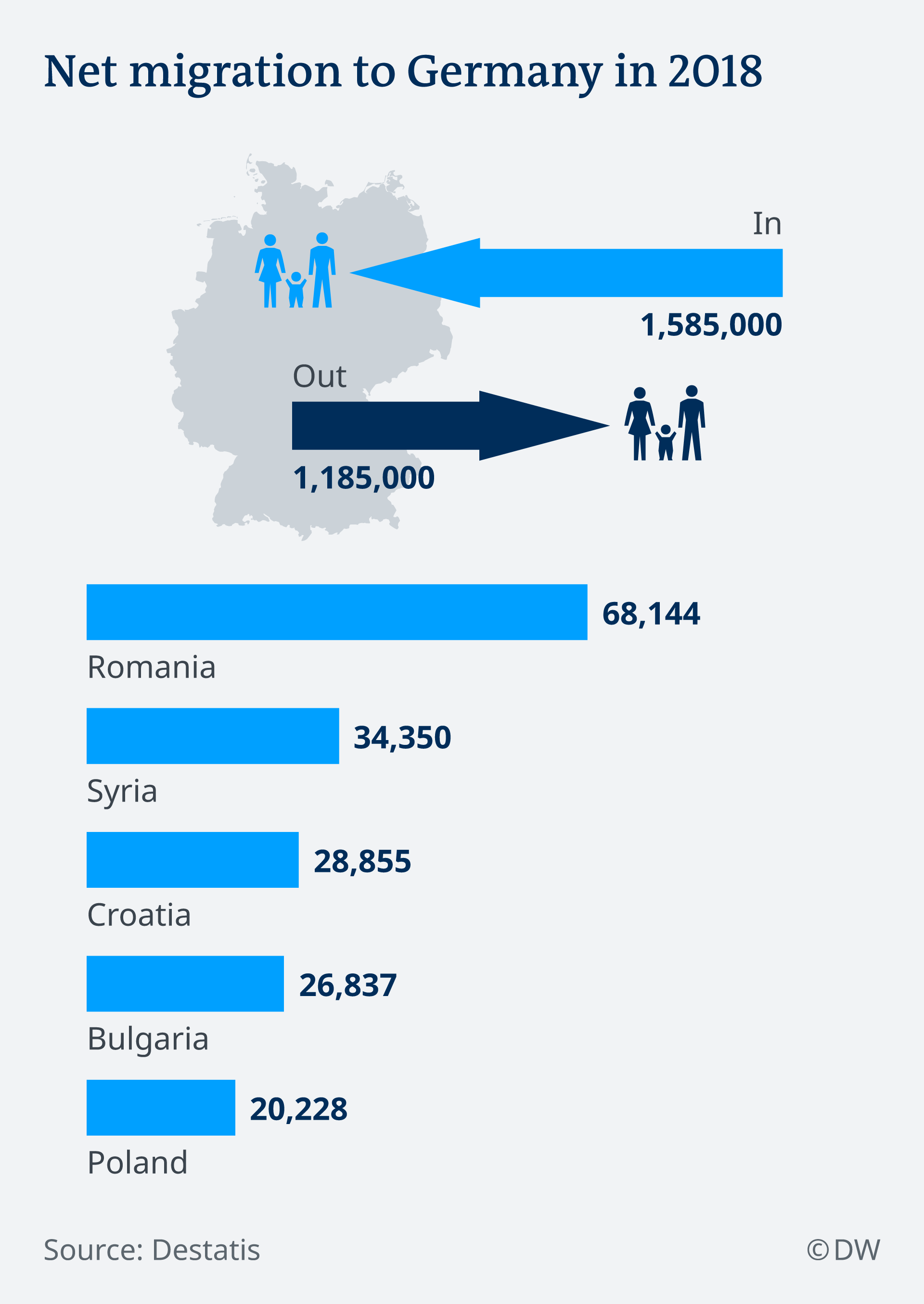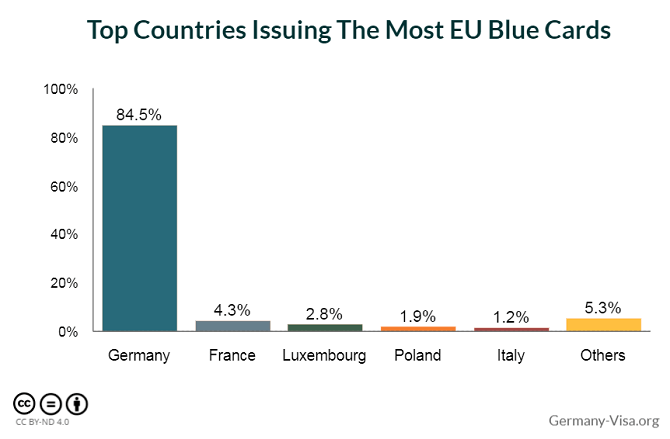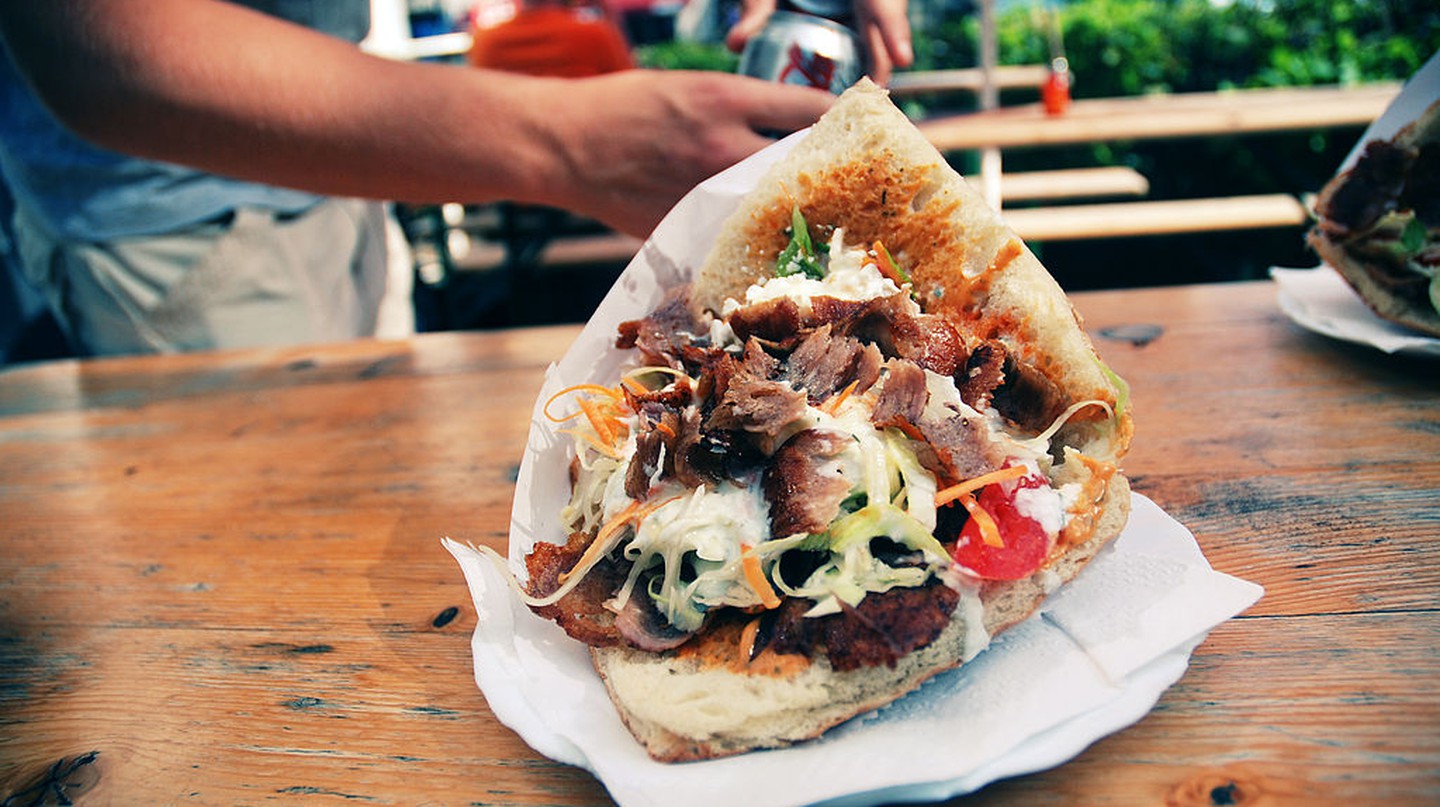2.2 Welchen Einfluss hat Sprache auf unsere kulturelle Identität?
3 min read•june 18, 2024
Nathan Wichert
Nathan Wichert
Welchen Einfluss hat Sprache auf unsere kulturelle Identität?
Multi-Kulti Deutschland: Germany's Future Depends on Immigration and Integration
- Germany’s population is the second oldest in the entire world and the country’s birth rates remain low. The country is relying on immigration to thrive with its aging population.
- Germans are taking steps to welcome people from all over the world to be a part of their country and make it their own. The Go Your Own Way (Geh Deinen Weg) initiative, a program of the German Immigration Foundation (Deutschlandstiftung Integration (DSI)) promotes the integration of younger people from immigrant backgrounds into the German job market.
- The German Immigration Foundation (DSI) continues to create campaigns that seek to mentor and support people of immigrant backgrounds to enter the German workforce. A mentor is assigned to all of the members. These mentors work with people individually to assist in their successful integration into the workforce.

Take from dw.com.
Identität und Sprache sind miteinander verbunden, das heißt, die Sprache hat selbst eine eigene Kultur und spiegelt dadurch die Identität ihres Sprechers wider.
With Great Immigration Comes Great Diversity
- By 2040, about 35% of Germany's population will have a migrant background or be a migrant themselves, according to German migration expert Herbert Brücker, head of the migration research department at the Federal Institute for Employment Research (IAB).
- In 2019, 1 in 4 people in Germany have a migrant background.
- European Union Blue Cards 🔷 are the EU’s answer to American Green Cards and are work and residence permits for non-EU citizens. The European Blue Card provides comprehensive socio-economic rights and a path toward permanent residence and EU citizenship.
- Germany’s Federal Office for Migration and Refugees (Bundesamt für Migranten und Flüchtlinge [BAMF]) awarded more than 27,000 Blue Cards in 2018 (more than any previous year). In 2017, almost 85% of EU Blue Cards were awarded by Germany, and Germany has awarded more Blue Cards than any other country in the EU since the initiative started in 2012.

Image taken from visaguide.world.
How the German Language is Being Transformed by Migration
- Migration is changing the way Germany looks. It leaves a trace on German culture and it even leaves a lasting effect on the language itself. Language is constantly changing. Today, we don’t look something up in the dictionary or in the encyclopedia, we google it (das googeln wir).
- Language is open and it includes words and phrases from other languages. In Germany, the Döner Kebab has made a lasting impact on German menus, but also on their language. Duden, the Meriam Webster of Germany, has their very own entry for the savory sandwich.

Image taken from theculturetrip.com.
The Influence of Globalization on the German Language 🌐
- Technical innovation and globalization (the process of interaction and integration among people, companies, and governments worldwide) also bring a ton of new words to German. A lot of times these are English words and people don’t even bother translating them anymore.
- Often when listening to Germans speak, you will hear words you understand simply because they have adapted English words into their everyday vocabulary or slang.
- The German language Association (Verein Deutsche Sprache) counts 7,500 Anglicisms in its Anglizismen-INDEX, and estimates that 79% of them are used instead of the actual German word.
German Words with Migration Backgrounds
- Realisieren actually means “verwirklichen/umsetzen” (to materialize or achieve/to implement) but is almost exclusively used the way it is in English. The Germans have words to express “realizing” something → erkennen/sich klarmachen
- Es macht keinen Sinn in German really does make no sense. It is a direct translation from the English (it - makes - no - sense). However, in German ‘sense’ is not made, it’s had, and the Germans had an expression that expressed this (es hat keinen Sinn).
- Yalla is an Arabic word that can be heard all over Germany and it means hurry up. The German beeil dich is still very much used.
- Lan is a Turkish word that has become part of the way a lot of people speak. It means dude and is often heard by young Germans the way bro is used in the US.
<< Hide Menu
2.2 Welchen Einfluss hat Sprache auf unsere kulturelle Identität?
3 min read•june 18, 2024
Nathan Wichert
Nathan Wichert
Welchen Einfluss hat Sprache auf unsere kulturelle Identität?
Multi-Kulti Deutschland: Germany's Future Depends on Immigration and Integration
- Germany’s population is the second oldest in the entire world and the country’s birth rates remain low. The country is relying on immigration to thrive with its aging population.
- Germans are taking steps to welcome people from all over the world to be a part of their country and make it their own. The Go Your Own Way (Geh Deinen Weg) initiative, a program of the German Immigration Foundation (Deutschlandstiftung Integration (DSI)) promotes the integration of younger people from immigrant backgrounds into the German job market.
- The German Immigration Foundation (DSI) continues to create campaigns that seek to mentor and support people of immigrant backgrounds to enter the German workforce. A mentor is assigned to all of the members. These mentors work with people individually to assist in their successful integration into the workforce.

Take from dw.com.
Identität und Sprache sind miteinander verbunden, das heißt, die Sprache hat selbst eine eigene Kultur und spiegelt dadurch die Identität ihres Sprechers wider.
With Great Immigration Comes Great Diversity
- By 2040, about 35% of Germany's population will have a migrant background or be a migrant themselves, according to German migration expert Herbert Brücker, head of the migration research department at the Federal Institute for Employment Research (IAB).
- In 2019, 1 in 4 people in Germany have a migrant background.
- European Union Blue Cards 🔷 are the EU’s answer to American Green Cards and are work and residence permits for non-EU citizens. The European Blue Card provides comprehensive socio-economic rights and a path toward permanent residence and EU citizenship.
- Germany’s Federal Office for Migration and Refugees (Bundesamt für Migranten und Flüchtlinge [BAMF]) awarded more than 27,000 Blue Cards in 2018 (more than any previous year). In 2017, almost 85% of EU Blue Cards were awarded by Germany, and Germany has awarded more Blue Cards than any other country in the EU since the initiative started in 2012.

Image taken from visaguide.world.
How the German Language is Being Transformed by Migration
- Migration is changing the way Germany looks. It leaves a trace on German culture and it even leaves a lasting effect on the language itself. Language is constantly changing. Today, we don’t look something up in the dictionary or in the encyclopedia, we google it (das googeln wir).
- Language is open and it includes words and phrases from other languages. In Germany, the Döner Kebab has made a lasting impact on German menus, but also on their language. Duden, the Meriam Webster of Germany, has their very own entry for the savory sandwich.

Image taken from theculturetrip.com.
The Influence of Globalization on the German Language 🌐
- Technical innovation and globalization (the process of interaction and integration among people, companies, and governments worldwide) also bring a ton of new words to German. A lot of times these are English words and people don’t even bother translating them anymore.
- Often when listening to Germans speak, you will hear words you understand simply because they have adapted English words into their everyday vocabulary or slang.
- The German language Association (Verein Deutsche Sprache) counts 7,500 Anglicisms in its Anglizismen-INDEX, and estimates that 79% of them are used instead of the actual German word.
German Words with Migration Backgrounds
- Realisieren actually means “verwirklichen/umsetzen” (to materialize or achieve/to implement) but is almost exclusively used the way it is in English. The Germans have words to express “realizing” something → erkennen/sich klarmachen
- Es macht keinen Sinn in German really does make no sense. It is a direct translation from the English (it - makes - no - sense). However, in German ‘sense’ is not made, it’s had, and the Germans had an expression that expressed this (es hat keinen Sinn).
- Yalla is an Arabic word that can be heard all over Germany and it means hurry up. The German beeil dich is still very much used.
- Lan is a Turkish word that has become part of the way a lot of people speak. It means dude and is often heard by young Germans the way bro is used in the US.

© 2024 Fiveable Inc. All rights reserved.